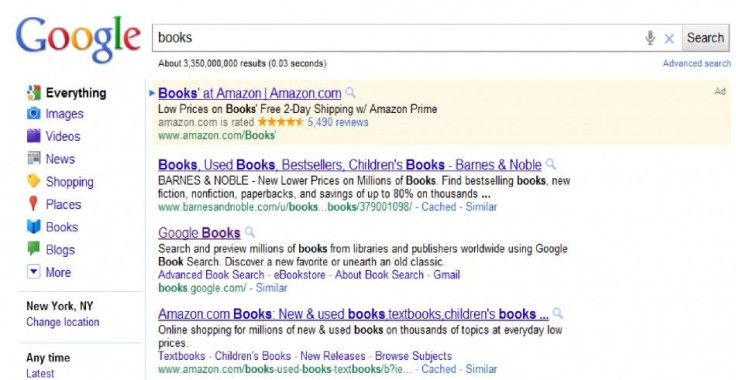Does Google Abuse Its Search Dominance?

The FTC has launched a probe into Google's practices. The Wall Street Journal reported that the probe had to do with the way Google ranked its own services on its search engine.
If its services are unfairly and artificially ranked high, Google probably would be violating anti-trust laws, which stipulate that companies cannot abuse their advantage in one field to stifle competitor products in another field.
Over ten years ago, Microsoft was hit with an anti-trust case that accused it of abusing its dominance in Windows to push other services. Specifically, Microsoft was accused of bundling Internet Explorer with Windows to crush Netscape.
Now, it may be Google's turn to face the anti-trust scrutiny.
Google has many services besides webpage search. They include image search, video services, map services, news aggregator, email, browser, finance website, calendar services, book services, and more. Many of them show up quite high on Google searches, as seen below*:
Query Rank of Google Service
images Google Images #1
videos Youtube #2
maps Google Maps #1
news Google News #2
email Gmail #1
browser Google Chrome #2
finance Google Finance #1
calendar Google Calendar #1
books Google Books #2
Many of these services show up high likely because they're truly the best and most relevant results for users. Most would agree that Youtube is the most popular/best in its industry. The same argument can be made for Google Maps and Gmail.
However, the same probably cannot be said for Google Chrome and perhaps Google Finance.
So is Google manually rigging its search results?
That's probably not the case. Google doesn't have a history of manually interfering with its algorithms. When it's trying to improve search or combat spam, it prefers to do it with algorithms; only in extreme cases does it resort to manual penalties.
Google isn't likely to risk its search engine cash cow to push smaller services. If it didn't do it when it was a struggling startup, it won't do it now. Moreover, Google founders Sergey Brin and Larry Page probably have enough idealism and integrity to not resort to such base manipulations.
However, it's possible that Google may be bundling its products in other ways.
For example, search queries for locations are automatically accompanied by Google maps results, which give the service more exposure. Google Images and Google News also enjoy this advantage.
Moreover, services such as Google Books and Youtube are probably search engine optimized. Sure, competitors can do the same, but can they really optimize Google search better than Google employees?
If this turns out to be an issue, Google can conceivably be required to set up a Chinese wall between its search engine team and employees of other services.
*Google individually tailors search results, so what shows up on my computer might not show up on yours.
© Copyright IBTimes 2024. All rights reserved.





















